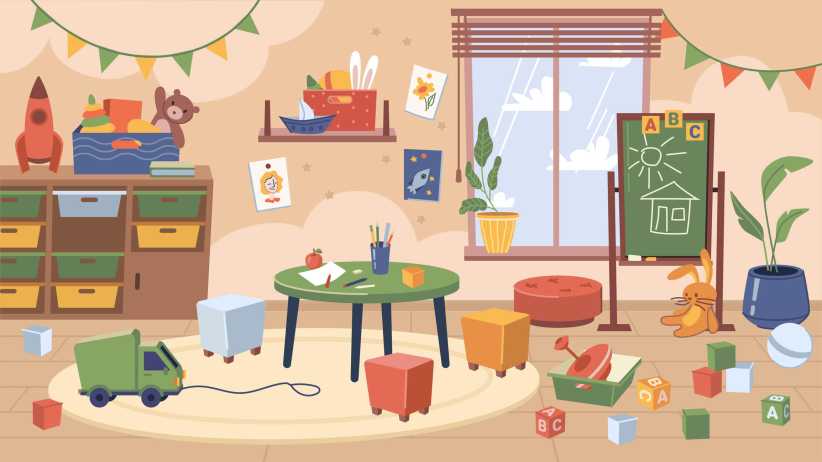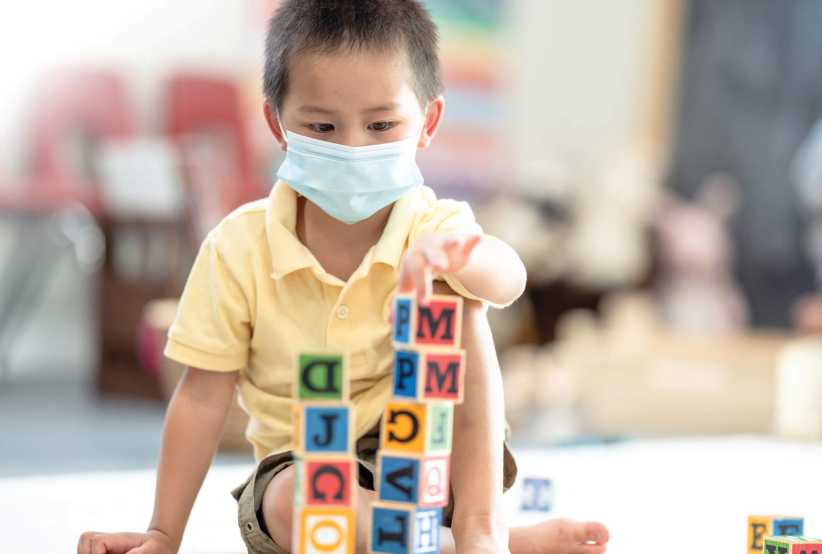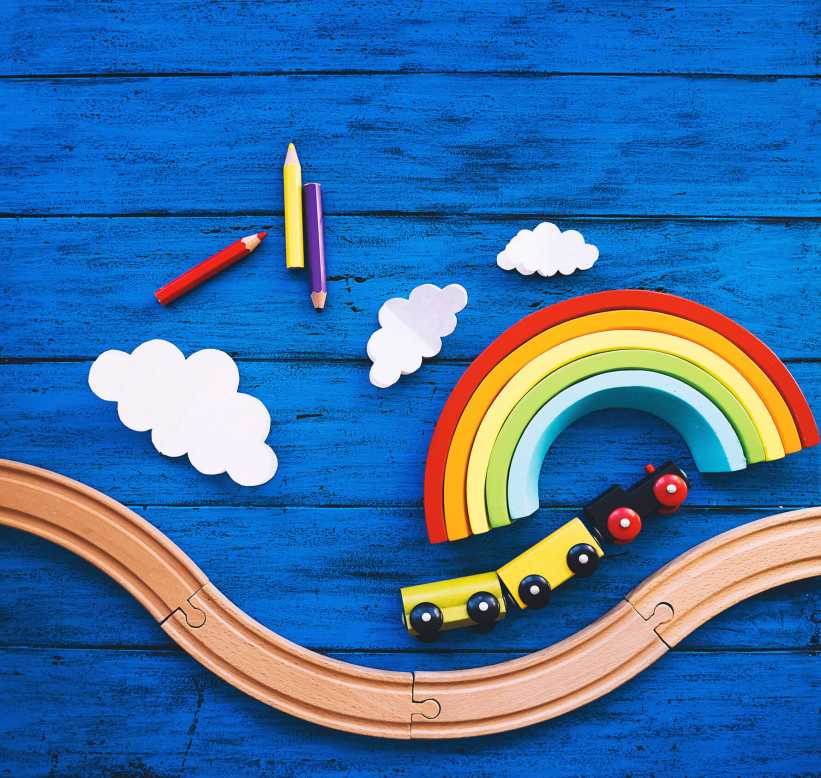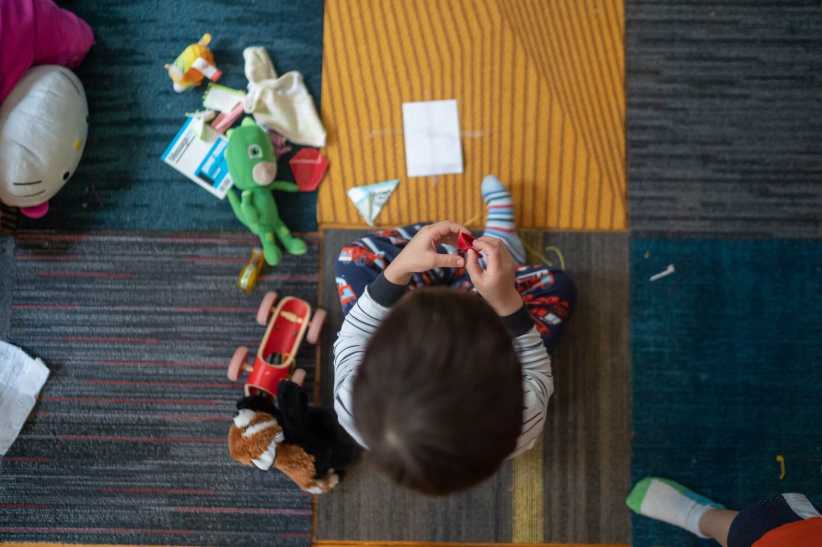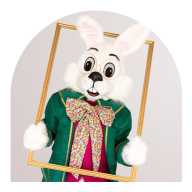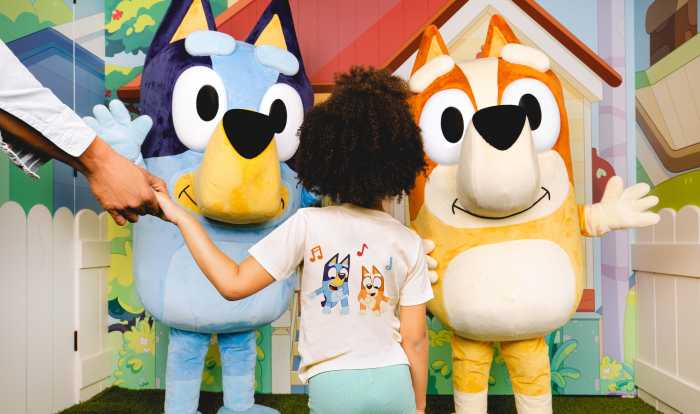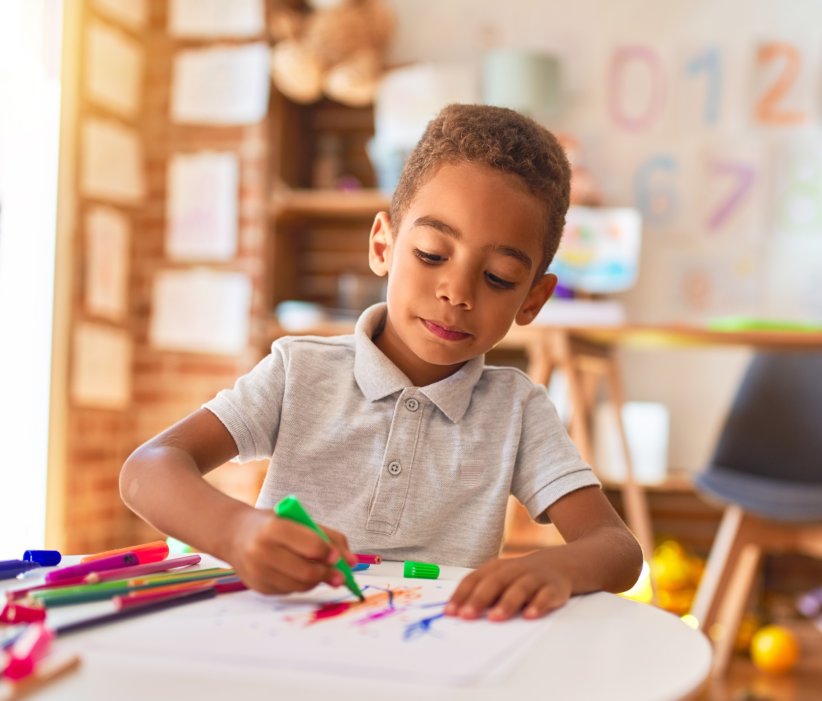
Montessori Education: A Personalized Guide for Parents
Montessori has become a movement with over 5,000 schools now in the United States, and many in NYC. Whether your little ones are currently enrolled in a Montessori school or not, we’re sure you’ve heard the buzz around this unique approach to education.
When you embark on the ohso-long search for a school for your kiddo, there are so many factors to consider — too many! That’s why we’ve decided to coordinate your top priorities when looking for a school with how the Montessori education fulfills them. Whether your primary concern is individualized learning, warm and welcoming classrooms, or the available resources and opportunities, we’ve got you covered.
What is a Montessori Education?
Many people have heard the term Montessori, but not everyone knows exactly what it is. In a nutshell—and according to the American Montessori Society (AMS)—Montessori fosters rigourous, self-motivated growth for children and adolescents in these areas of their development: cognitive, emotional, social and physical.
“Montessori is a creative way of teaching both individually and as a community of learners,” says Gina Lofquist, AMS’ senior director of education and strategic initiatives. “As such, Montessori schools seek to be in partnership with parents and to build a community for and with families involved. It really is a team effort.”
You may have heard of the “Montessori method,” which we’ll explain in just a bit.
History of Montessori Education
First, it’s important to have an understanding of where Montessori came from, so here’s a brief history. It was created by Italian physician and educator, Maria Montessori, who noticed through many observations that children thrived and learned in an engaging and hands-on environment. She opened her first school in 1907 for children whose families couldn’t afford a formal education.
Today, Montessori schools teach over 1 million students in the United States. Of course, there’s a lot more to the birth of this education movement, so it’s worth taking a deeper look if you’re considering a Montessori education for your child.
The Montessori Method
The Montessori method of education uses natural interests and activities, rather than formal teaching techniques. A typical Montessori classroom is student-led and often comprises multiple age groups. But don’t worry—the classes are guided by experienced teachers who are always watching and observing a child’s characteristics, tendencies, talents and abilities.
Montessori is most popular in preschool and elementary grades, though some schools have been known to extend their programs for younger kids to middle- and high-school levels. It’s important to note that Montessori programs can be found in public, charter and magnet schools, according to the AMS.
In other words, it’s possible that your local pre-k, middle or high school offers Montessori programs without it being an official Montessori institution. Lofquist explains that there are several unique factors to Montessori education and philosophy. Here are a few:
Multi-Age Classrooms: These allow children to learn from each other. This supports their learning to collaborate and helps develop their leadership skills.
Observation: Montessori guides carefully observe children to learn how to meet their individual needs and the needs of the community, Lofquist explains.
The Prepared Environment: This appeals to a child’s innate desire for learning and encourages independent discovery. Materials: The materials in a classroom provide hands-on learning that give children the opportunity to experience abstract concepts in a concrete way.
Here’s a great example provided by Lofquist: “1,000” isn’t just a number. It is a large, golden cube filled with 1,000 golden beads. The gold allows for storytelling about value and they also experience 1,000 by weight and size are able to compare it to a 100 which has 100 beads, a 10 with 10 beads, or one singular bead.
Potential Benefits of a Montessori Education
Many experts and parents are advocates of a Montessori education. But of course, as with anything else, there are benefits as well as challenges to consider.
“Some studies exist to show beneficial effects on learning and development, and the approach is generally viewed positively by child development experts and pediatricians,” Rebekah Diamond, M.D., an assistant professor of pediatrics at Columbia University and author of Parent Like a Pediatrician, says. “The biggest downside I’ve encountered is that it can be hard to access this type of education both due to limited availability and cost.”
Mary Miele, education consultant nursery-college, learning specialist, and CEO of Evolved Education, says that there are many benefits to a Montessori education, but it’s important to make sure its approach aligns with your parenting style, as well as the temperament of your child.
“Montessori promotes academic skills, but equally importantly it develops a child’s sense of responsibility and respect for the people and things around them. It places learning within the context of the human experience. It celebrates the joy of learning. At the heart of the method is the child and the child’s development and a harmonious relationship between adult and child,” explains Miele.
Your Top Priorities
Now that you have a good background on what Montessori is, let’s take a look at some priorities to consider when choosing a school.
Priority: Individualized Learning
Do you prioritize an education for your kiddo that really focuses on their own personal progress and learning needs? Montessori recognizes that all students learn at different paces, so teachers focus on each student’s individual needs.
As mentioned earlier, the Montessori curriculum is intentionally grouped into 3-year cycles, rather than broken out into year-by-year expectations for student learning. Kids are encouraged to pursue their own interests and curiosities, taking the time they need to fully understand each concept and meet individualized learning goals.
Montessori students learn to take care of themselves and their environment- they wash tables, organize shelves, prepare their own meals, and assist younger children.
Priority: Supportive Community
Once you join the Montessori network, you become a part of a much larger community of teachers, students and parents all working together. As children mature in the Montessori classroom, they understand that they are a part of a community where everyone has their own individual needs, but they’re also encouraged to contribute to the community.
The environment is super loving and the classrooms are thoughtfully arranged, welcoming each student into the community with open arms. Montessori learners recognize themselves as part of multiple communities- the community of the classroom, the community of the family, and the community of the wider world. And even with distance learning, Montessori was still able to facilitate a strong virtual community!
Priority: Well-Rounded Curriculum
Teachers carefully observe your kids in the classroom to customize the curriculum for their own unique abilities, interests, and learning style. In the infants and toddlers program, little ones develop skills such as language, concentration, problem solving, visual discrimination, and physical coordination.
The early childhood classroom offers your child five areas of study: practical life, sensorial, math, language, and cultural studies. Similarly, the elementary program includes science and social studies, cultural studies, language, math, and practical life. In the secondary program, there are advanced courses in language arts, mathematics, sciences, and social studies, as well as specialized courses, including world languages, visual and performing arts, health and fitness, field studies, and service learning. The “spiral curriculum” introduces students to many interrelated topics, repeatedly over time, to instill a broad and deep knowledge.
Priority: Location Convenience
You want a school that’s on your route to work in the morning or nearby your neighborhood so that dropping your kids off and picking them up fits smoothly into your busy NYC schedule- we totally get it! Luckily, there are a ton of Montessori schools in the city.
From Battery Park to SoHo to Morningside Heights and everything in between, location is certainly not a barrier with the abundance of Montessori schools. Whether classes are in-person or remote, you won’t have to worry about going out of your way to get your kiddo to school.
Priority: Affordability
As for now, most Montessori education is provided in private schools, and tuition can vary based on location, age, hours, and other factors. Many Montessori schools offer financial aid for families in need, and some schools have reduced tuition when you enroll more than one child.
Priority: Education for Kids with Special Needs
Does your child have special needs and you’re looking for a school that will accomodate them? Montessori education provides a nurturing environment for kids of all abilities and learning styles, including kids with special needs, physical disabilities, learning differences in reading, spelling, and math, ADHD, and mild to moderate autism spectrum disorders.
Because kids learn in multi-age classes with the same teacher for three years, this provides a stable, predictable environment and sustained connection that particularly suits kids with special needs. Learning at Montessori is also multi-sensory and hands-on, and because teachers tailor education to specific needs, kids with disabilities get the individualized learning experience that works for them.
Free from the pressure of meeting formal standards of learning, like grade-level benchmarks, kids with special needs can really take their time and develop a unique educational and developmental path.
Montessori Schools Directory
Manhattan
Battery Park Montessori
21 S End Ave. New York NY 10280
212.235.2320
admissions.bpm@greenivy.com
Battery Park Montessori is New York’s only trilingual Montessori school, offering Spanish and Mandarin language exposure. Our Montessori trained teachers nurture each child’s social, emotional, cognitive, academic, and physical needs, fostering their independence, natural curiosity, and problem-solving abilities. Partnered with Learning Beautiful’s handson, tactile, and age-appropriate materials, students are introduced to STEM and coding without ever touching a computer. Learn more at BatteryParkMontessori.com.
The Montessori School of New York International
347 E. 55th St., Sutton Place, Manhattan
212-223-4630
A multi-faceted program that inspires curiosity and a love of learning! Classes are equipped with didactic Montessori materials that encourage absorption of concepts through play, leading children to become well rounded and confident. Program includes science, music, foreign languages, musical theatre, swimming, dance, yoga, chess, cultural events, and robotics!
Twin Parks Montessori
Central Park Montessori – 1 West 91st street
Park West Montessori School – 435 Central Park West
Riverside Montessori School – 202 Riverside Drive
cpoffice@twinparks.org
Twin Parks Montessori School serves families with children from 3 months to 5 years old. We are an authentic Montessori school, with three campuses on the Upper West Side. We are an accredited school, across the street from Central Park or Riverside Park. We offer summer and late-day programs.
Brooklyn
Elemental Arts Montessori
364 Argyle Road Ditmas Park/Flatbush
718- 484-0942
Located in the historical Victorian section of Beverly Square West, this is a Full Member School with the American Montessori Society, for preschool and kindergarten children who will be 3,4 or 5 years old by 12/31 of the year they’re enrolled. EAM has a small class size of only 12 children per session with 2 Montessori teachers, offering a warm, nurturing and stimulating environment with an emphasis on individual attention for every child.
Elite Minds Montessori is a private preschool in Carroll Gardens for children ages 2 to 5 years old. It offers a nurturing multilingual (English, French and Spanish) environment where children can develop their unique skills and potential by engaging their minds in art, music and play in a traditional Montessori setting. There is a 5 day half day program from 8:30am – 11:30am or 1:30pm – 4:30pm, a 5 day full day program from 8:30am – 2:30pm and early drop off and extended day. The Summer Camp is now enrolling (2 week minimum) running from July 11 to August 19. Email director@eitemindsmontessori.com to schedule a tour.
Little Thinkers Montessori
2 Locations: Clinton Hill and Park Slope
347-996-2688
718-858-8961
Offering a Summer Program with full or ½ day sessions running for 7 weeks. Activities include, Gardening, Science, Art, Yoga, Music, Dance and outside play with extended care available. During the school year, LTM preschool curriculum is individualized, multi-aged, and thoughtfully guided to match each student’s needs. LTM also offers an afterschool program for students in preK through 5th grade. Please contact the school to learn more about the programs offered.
Rivendell School
277 3rd Avenue Park Slope/Gowanus
718-499-5667, ext. 14
kara.pereira@rivendellnyc.org
A Montessori pre-primary school providing a respectful, inclusive community helping children feel powerful and confident as learners and as social and emotional beings. Toddler, half day and extended day programs are available (2 through 6 years). Offering beautiful Montessori classrooms, an excellent, student/teacher ratio, and a warm, cooperative atmosphere where children learn to work and play.
Montessori Day School of Brooklyn
237 Park Place Prospect Heights, Brooklyn
718-398-2322
MDS is a community of families, children and educators using Montessori philosophy to guide and inspire a joy of learning both inside and outside the classroom. MDS is a welcoming community that values diversity. They are committed to excellence in early childhood education and continuous learning. The school serves children ages 2-5 years, and is divided into toddler and primary classes. Primary classes have mixed-age groups (i.e., 3-5 years of age) following the Montessori model in which young children learn from older ones and older children reinforce their learning by helping the younger ones.
Queens
Our Lady of Grace Montessori School
29 Shelter Rock Road Manhasset, NY 11030
(516) 365-9832
EMAIL: sister.kelly@ olgmanhasset.com
At Our Lady of Grace each child is valued as a unique individual. Montessori education recognizes that children learn in different ways and accommodates all learning styles. Students are free to learn at their own pace, each advancing through the curriculum as he/she is ready and guided by the teachers.
Westchester
Liberty Montessori Schools
155 Beechmont Dr., New Rochelle
914-636-3461
631 W. Boston Post Road, Mamaroneck
914-777-1382
An amazing waterfront facility offering programs for toddler -Gr. 3 with an updated enrichment curriculum that incorporates special music programs. Liberty’s unique curriculum includes their special Science programs leading advanced students to a Challenger Program with special multilingual programs in Chinese, French, German, Spanish and Japanese. A tour of the facility to meet with the school director can offer more details about the Montessori environment.
Hudson Country Montessori School
340 Quaker Ridge Road New Rochelle, NY 10804
914-636-6202
info@hudsoncountry.org
Hudson Country Montessori School inspires and promotes innate curiosity and a love of learning through our progressive Montessori pedagogy. Striving to help children grow into respectful, socially-adept and compassionate leaders. The curriculum is designed to empower students to become independent, creative thinkers and confident achievers. Private, co-educational school, toddlers (18 months) through 8th grade. Schedule a private tour today!
Montessori Children’s Center (MCC)
220 Westchester Ave., West Harrison
914-607-7600
ktkorngold@cmteny.com
A year-round, full-time Montessori childcare facility, MCC offers authentic Montessori programs for children 3 months to 5 years old. Some infant spaces available for the September 2022-August 2023 program year. Infants must be between 3-9 months at enrollment. To sign-up for a tour and meet the director, call K.T. Korngold.
Montessori School of Pelham Manor
1415 Pelhamdale Avenue, Bronx, New York
914-738-1127
pelhammontessori@gmail.com
Upholding a “tradition of excellence” for over 35 years, this school firmly holds to the principles of child development devised by Dr. Maria Montessori. Children ages 3 to 5 work with apparatus in a prepared environment progressing at their own rate, developing the confidence and love of learning that is the hallmark of Montessori. Our small class sizes make it easy for our instructors to find out how to best cater to your child’s unique learning needs. Prepare your child for a lifetime of learning.
Pound Ridge Montessori
5 Highview Rd, Pound Ridge, NY
914-763-3125
Children enter their school and immediately feel welcome in the prepared environment. The classrooms are carefully presented to allow for freedom of flow, small group learning, and individual mastery of each lesson and each piece of material. There are different areas for the children to choose from: Practical Life, Sensorial, Math, Language, Science, Geography and Art. They have a multi-age classroom for students ages 3-5 and another just for two year olds.
Yellow Acorn Montessori
46 Fox Meadow Rd, Scarsdale, NY 10583
914-725-2173
Yellow Acorn Montessori’s mission is to encourage the social, emotional, and cognitive development of the child by providing a comprehensive Montessori education, cultivating independent thought and foundational skills as well as awareness of their environment, empathy for others, and social ease and confidence. The Early Childhood Program (3-5 years) and Toddler Program (18mos-36 mos) include Language, Math, Science, Geography and Culture, Practical Life, Sensorial, Music, Art and more.
Long Island
Countryside Montessori School
354 Lakeville Road, lower level, Great Neck
516-466-8422
Email info@cmsgn.com
Countryside Montessori School offers children, 18 months to 6 years, a well balanced and enriched curriculum which includes traditional subjects, art, and music. They are located on an estate-like setting with an outdoor playground and nature walks. Classrooms are fully equipped and spacious. Countryside Montessori is offering in-person camp for children ages 18 months to 6 years old. There are morning academics for the older children and playtime for all children.
Psst… Check out A Brief History of Roe v. Wade and Why Everyone Should Be Concerned: An Advocate Weighs In













